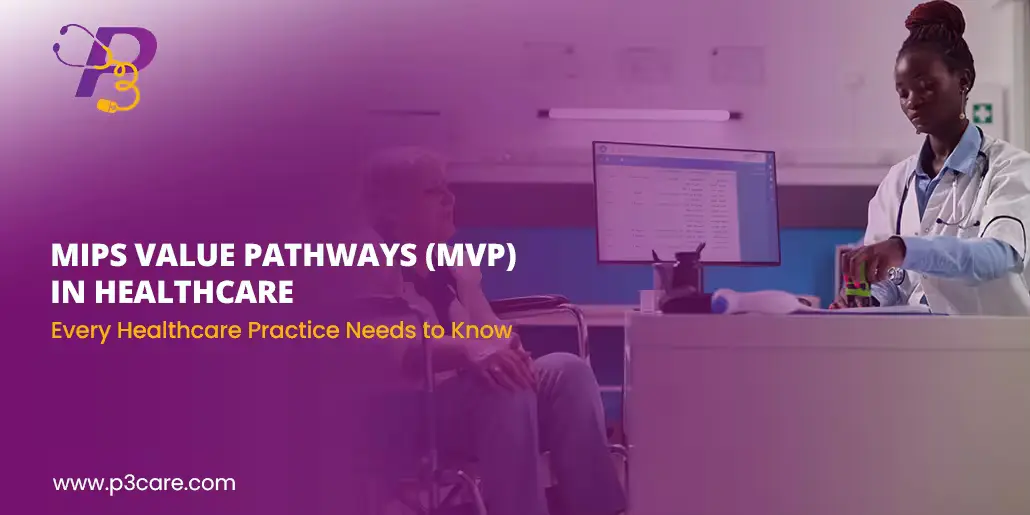

Each year, the healthcare system in the U.S. incurs an estimated expense of $935 million in medical billing errors. This expense has a large tie to coding errors and claim denials, particularly in specialties that handle large volumes of testing, such as pathology. In fact, the American Medical Billing Association reported in their 2024 report that 35% of pathology claims will have a first-time denial – mostly related to incomplete documentation, undiscovered CPT codes, or deviation from specific payer guidelines. As every diagnostic or laboratory test increases in complexity, the administrative burden will only go up — and along with it, the pressure on billing teams and the revenue streams of pathology groups.
In the last few years, especially since 2023, artificial intelligence (AI) has advanced exponentially, and healthcare providers have applied intelligent automation to billing. Pathology labs and diagnostic service providers have unique opportunities to implement AI in pathology billing workflows to increase accuracy in claims submissions, decrease the number of claim denials, and increase cash flow — with little or no additional labor.
Billing in pathology is complex, with thousands of codes and payer-specific rules for tests such as IHC and molecular diagnostics. Even minor errors can lead to costly denials. AI in pathology billing makes this process easier by automating the identification of codes, analyzing pathology reports, and verifying documentation. For example, NLP tools can scan pathology reports and recommend accurate CPT codes, thereby reducing the delay and effort required for manual review of the reports. In 2025, many labs are adopting AI-based platforms that are connected to LIS and EHR systems to increase accuracy and expedite billing, making AI a necessity for billing in the modern pathology laboratory.
Billing accuracy is a major concern in pathology due to complex codes and lengthy reports. AI for billing accuracy in pathology addresses the issues of accuracy by automatically reviewing the report and making suggestions on the correct codes, which subsequently reduces the errors and fees for missed charges. AI for billing accuracy in pathology fewer denials and quicker payments for labs, improving overall revenue. This technology allows billing teams to engage with more important aspects of billing, rather than fixing simple mistakes.
Many AI tools for medical billing are now being used in pathology labs to enhance their billing processes. These tools automate coding by using technologies like natural language processing and machine learning to find errors in claims and manage claim processing all at the same time.
Well-known AI tools for medical billing often integrate easily into existing systems like LIS and EHRs, simplifying the capture of all billable procedures and eliminating excessive manual work. AI platforms typically include claim validations, denial prediction, and appeal automation to facilitate quicker reimbursements and less revenue loss.
Implementing AI for medical billing allows pathology groups to improve accuracy and save time in their billing processes, resulting in less billing anxiety and more reliability.
The pathology revenue cycle is a complicated process, which includes charge capture, pre-billing tasks, denial management, and payment tracking. Now, with AI-enabled technology, it can initiate claim generation, check eligibility, and post payments electronically. AI tools for medical billing enables pathology practices to generate accurate billing for every test while maintaining accurate billing documentation. Additionally, these tools provide the billing team with real-time information regarding claim status, denial patterns, and cash flow, allowing for more timely responses and improved collections for pathology practices. In summary, Pathology revenue cycle AI And smart technology enables pathology groups to expedite billing cycles, lead to compliance, and enhance revenue cycle performance.
Pathology billing is arguably one of the most complicated areas of medical reimbursement. Pathologists usually don’t see patients like other specialties do; therefore, the billing is often based on difficult lab reports, tissue analysis, and diagnostic studies. As a result, charge capture and coding are even more reliant on documentation and accuracy behind the scenes.
Here are the top challenges that make this aspect of billing particularly challenging to keep up with.
Pathology has a wide range of CPT and ICD codes — from basic histology to advanced molecular diagnostics. Many procedures involve the usage of modifiers or bundling rules, and even the smallest error can lead to a denial and/or underpayment.
High-throughput laboratories are processing hundreds to thousands of specimens daily; the manual coding process for billing each case is subject to human error and missed revenue opportunities, especially when short-staffed.
Even the most amazing billing teams miss details of special stains, add-on tests, and the documentation for medical necessity. These missed components may lead to claim rejections or delays in payment.
Each insurance company can have different rules about what codes will or won’t be reimbursed, and the codes or documentation accepted by one payer might not be accepted by another. These variations create inconsistent billing processes.
Testing modalities such as IHC, FISH, and molecular panels generally have strict documentation associated with them. Denials tend to be frequent in these cases if the documentation correlating the test to the appropriate diagnosis codes is not included or if the justification for the test isn’t done appropriately.
The transition from manual billing systems to technology-based workflows is changing how pathology practices manage claims and revenue. Here are ways the latest technology is changing the various phases of the billing workflow:
Smart systems can read the pathology report and analyze the report to identify tests, diagnoses, and procedures that will need to be paid for. This prevents missed charges that may arise due to human error.
Based on the clinical language from the reports, the AI systems suggest accurate CPT and ICD codes and modify those codes where necessary. AI for billing accuracy in pathology results in improved accuracy and fewer coding mistakes.
After a claim is assembled in the system, it is checked for completeness, payer-specific rules, and other red flag issues prior to being sent to the payer for review and payment. This step will help eliminate any mistakes that will cause unnecessary denials.
The AI tools for medical billing analyze the various claims and denials to help understand what causes denials and adapt the billing rules to improve the acceptance of future claims.
When claims are denied, systems can develop rapid, accurate appeals letters based on templates and replicate cases, and suggest other potential avenues for appeals. Evaluation systems can also track claims and send reminders automatically.
Pathology billing is complicated; however, with the right technology, it does not have to be a constant pain point. AI-based solutions that are offered by P3Care are changing the game of medical billing by enhancing coding accuracy, decreasing denials, and accelerating reimbursements. Our knowledge of how advanced automation and pairing it with human stewardship can develop a plan to provide pathology practices the opportunity to maximize their Pathology revenue cycle AI compliant and audit-ready. For pathologists and lab managers looking to improve their billing process and create a financial safety net, a trusted partner and our team of experts can transform the way your practice does billing. The path forward for Pathology revenue cycle AI includes leveraging smart technology and tools that can drive teams and deliver defined results.
AI reviews pathology reports and can recommend the most appropriate CPT and ICD codes, helping to prevent human errors, avoid possible undercoding, and incorrect coding, which a pathology lab can suffer from without proper use of coding and billing. This will help lead to fewer denials and faster reimbursements.
Our team of experts provides AI-supported Medical Billing Solutions, entirely tailored to the physician practice, offering an automated process mixed with human review, leading to improved revenue capture, reduced denials, and improved billing efficiency overall.
Yes, P3Care ensures all processes are compliant with relevant and current regulations and standards applicable to medical billing. All systems are updated on a regular basis to reflect regulatory requirements, payer guidelines, and coding updates, to help minimize audit risk.
Challenges include data quality, system integration, change management, and the need for human oversight. Successful adoption requires proper planning, training, and partnership with experienced providers.
While timelines vary, many labs notice improvements in coding accuracy and reduced denials within the first 3 to 6 months of implementation.

